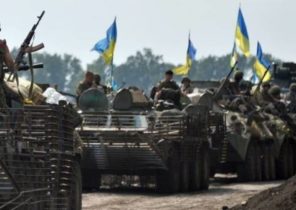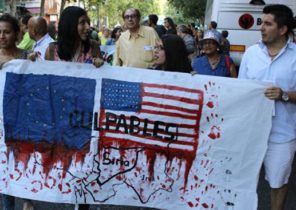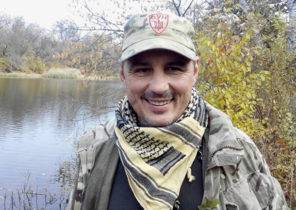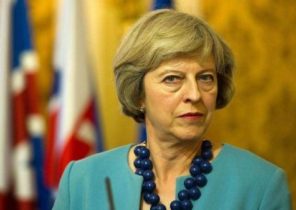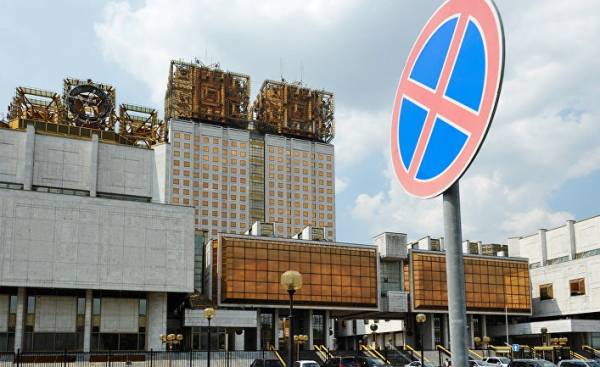
This week in Russia, many research teams are celebrating the Day of science — as was customary in the USSR. In Soviet times, a holiday for scientists had on the third Sunday of April. Before this date for questions RFI answered astrophysicist, chief editor of the newspaper “Troitsky variant”, doctor of physico-mathematical Sciences, leading researcher of the Institute for nuclear research RAS and Astro-space centre, FIAN Boris stern.
RFI: B. E., how do you assess the reform of the RAS with the perspective of today’s results?
Boris stern: assessed as not catastrophic. That is, the deterioration was less than expected. Increased bureaucracy. Now start some new overtures, the Union type institutions, which can lead to worse consequences, more serious. It can affect so that it is much harder to buy something, it is much harder to go somewhere. When each Institute is independent, you need to go directly to their Directorate, but here you have some common centre. It is necessary to take the above for any decision related to finances or something else.
— Why then these changes?
— Easier to manage. FANO (Federal Agency of scientific organizations — approx. RFI) does not hide: and we it’s easier. Easier to deal with 500 or 700 actors and two hundred would be — it is much easier. It’s just in the interests of the bureaucracy.
— Why in March was disrupted elections of the head wounds?
— Because they would have won Fortov (President of the RAS until March 23, 2017 — approx. RFI), and it did not suit someone in power: Fursenko or someone else close… Kovalchuk (President of the “Kurchatov Institute”, included in the middle circle of Putin — approx. RFI), probably played a role. Someone from the influential circles of people on the FORTS were not satisfied. And he would have won, and therefore canceled the elections, forced everyone to act. He is a man of quite independent, knows how to argue, knows how to defend his line. Authorities need to correct people, but not independent.
— Elections postponed for autumn. What, in your opinion, they should wait?
I don’t know. Put forward some kind of compromise figure, there will be some backroom trading. The end — do not know. Worst case, if it is a man Kovalchuk. But, maybe, there will be some more neutral option.
— What can you say about the Strategy of scientific and technological development, which endorsed the President at the end of last year?
— All these strategies is a blank piece of paper. Science develops by its own laws, and nobody knows what direction after some time will be a breakthrough which will die and so on. All of these strategies and priority areas for science are irrelevant. This is a bureaucratic game.
— Why, in your opinion, Russia is not competitive in the high-tech market?
— Russia is where a lot of competitive, but the brains we have, and people who are well versed in information technology, we have. But they work in the West, many of them left. We have things that — at least in the domestic market — are working well. The same Yandex, for example. Not to say that really bad, but below the world level, simply because the worse the conditions for business in General.
— And for science?
For science — in the second turn. Science is still not a business, there are other laws. The business should develop, it should not interfere. He has to have good laws and not get involved in its activities. But science is different, it requires public funding. But then the state should not meddle in how science develops. It now tries to climb, but so far these attempts are not fatal. That is, in science, in this sense, the situation is better. If it were better funded, I think it would normally exist.
— How do you feel about the proposal of the Minister of education Vasilyeva on the reduction in the number of graduate students in universities?
— You know, I did not penetrate. Perhaps we have a clearly unnecessary in graduate school, but, for example, in my field, graduate students is not enough. I, unfortunately, don’t know what she meant, I did not read her statement. As for physics, here, rather, the lack of graduate school.
— How do you assess the prestige of the scientist in Russia today?
Perhaps more prestigious than the end of the Soviet era and than 90 years. By some miracle, the prestige of science is growing. It has nothing to do with wages and the economy, it is linked to the attitudes, mentality, psychology.
The government on the third cut the cost of leading Russian universities this year. Despite the fact that teachers and already complained of the low wages. And whether the salaries of scientists the volume and quality of the work they do?
— 10 years ago was adequate, some even were probably higher because the quality of work is the national average lower than in, say, America or Europe. But since then, real wages have fallen dramatically, the ruble fell, and the ruble dimension, they have remained the same. So now it is, of course, lower than deserved the Russian science.
— What, in your view, now the main problems of the Russian science?
— Two problems are comparable in magnitude and interconnected. Of course, the lack of funding — it is very low. I take no salary. There is practically no financing of the research activities. If you don’t have grant — and grants are smaller, they get harder — you can’t do anything. Only academics can work really.
The second problem is the lack of young people. Some small progress, such as it was. Youth little more than the last few years, and that in itself is an amazing phenomenon, but still it is not enough. In science, a demographic catastrophe. She’s getting old. People who (came) at a time when science was strong in the 70-ies, they’re quite old — including me, I am also in those years. Youth is clearly not enough has come since then. And moreover, young people came, worked a few years, will defend their candidate and leaves. Because life is very hard. That is probably the demographic problem is the most terrible.
— The scientific community is making some effort to solve it?
— Apply, but how can we decide? Above himself can not jump. If I had more money, problems with housing were not, it would be easier. By the way, a little more successfully this problem is solved in the periphery. There is a paradox. Apparently, there is the cost of living is less. Maybe because of this. Maybe just pull more people to science on the periphery. Efforts, of course. Interaction with universities, all lectures, the enlightenment, the popularization of science, but these efforts, of course, limited in their capabilities.
— How on a scale do you assess the level of dialogue between the authorities and the scientific community and the willingness of the authorities to this dialogue?
— Two points. There is no dialogue. And it showed before the last election of the President of the Russian Academy of Sciences, abolishing them. What’s the dialogue? Took and wrung candidates, forcing candidates to withdraw. It is a dialogue? Of course not. There’s no dialogue and no desire to conduct this dialogue.
Meanwhile, as recently said the head of the Federal Agency of scientific organizations (FANO) Michael kotyukov, the government is preparing a plan for implementing the Strategy of scientific and technological development and developing a comprehensive action plan to 2025. In this regard, Kotyukov urged the Russian Academy of Sciences to actively offer government and business new ideas, not waiting for the elections of the President of the Russian Academy of Sciences.
“Science now is the time to offer government and business new ideas, projects, solutions that will help us to restore economic growth, increase the share of innovative products,” said Kotyukov.
